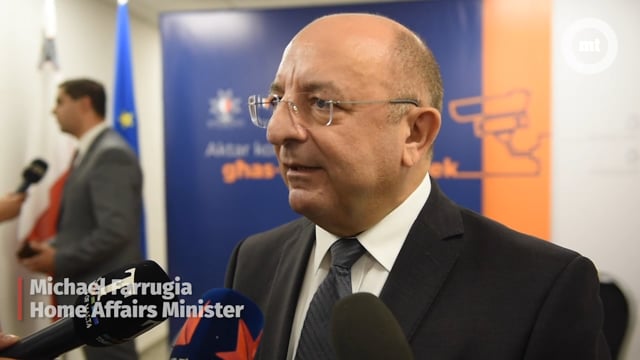[WATCH] Minister implies that migrants are being kept in detention because open centres are full
Home Affairs Minister Michael Farrugia says talks are being held with the church on a public-social partnership to increase the capacity of open centres to house migrants


Home Affairs Minister Michael Farrugia has said that efforts are currently underway to increase Malta’s capacity at Open Centres, following two migrant protests at the Safi Detention Centre in recent weeks.
NGOs have argued that migrants are being kept longer than legally necessary in detention, a situation that has led to the protests. Now, in replies to journalists, Farrugia has implied that the lengthier detention was the result of a lack of capacity in open centres.
He said that in recent months, a number of pre-fabricated containers and beds had been added at the Open Centre to reduce, as much as possible, the amount of time spent at the Safi centre.
“We believe that a balance should be struck between humanitarian aspects and security considerations,” Farrugia said.
“We have certain obligations towards people once they are out of detention. We can’t just tell them ‘now go and see how you are going to live your life’, but are obliged to, for a period of time, offer residency in an open centre”.
Once at the centre, Farrugia said, migrants are told that they can stay for up to a year, during which they are given the opportunity to find employment in Malta.
Farrugia added that talks were underway with Church authorities for a public social partnership that would see the church offer their facilities and beds to migrants.
Last week, a group of 34 NGOs said that the detention of asylum seekers on medical grounds at the Safi barracks was unlawful.
They pointed out that national laws allowed health authorities to restrict an individual’s movement for medical treatment for a period not exceeding four weeks, which may be exceptionally extended for up to ten weeks for the purpose of finalizing any tests that may be necessary.
Asked to comment on the NGOs claims, Farrugia said that authorities were "lengthening the process of detention related to health as much as possible for us to be more effective". He failed to elaborate.


.png)

.png)



.jpg)




.jpg)






.png)

